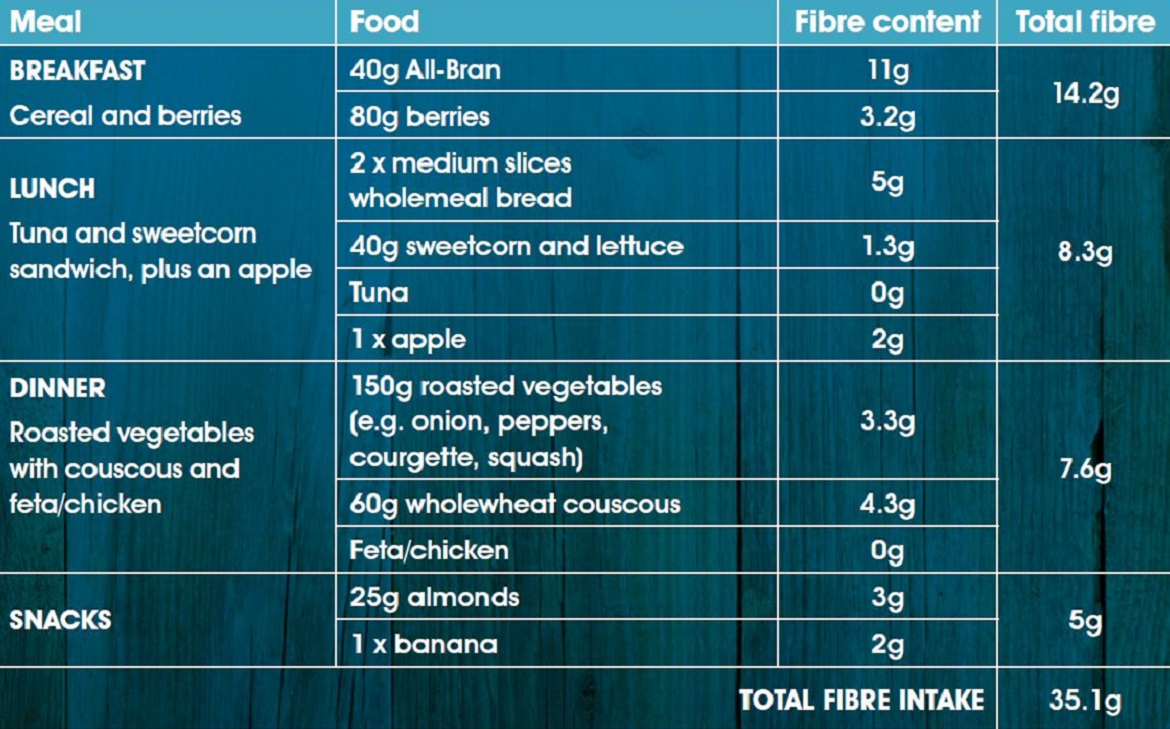Bowel cancer is the fourth most common cancer in the UK, after breast, prostate and lung cancers. Over 41,200 people are diagnosed with bowel cancer every year in the UK. More than nine out of ten new cases are diagnosed in people over the age of 50, and nearly six out of ten cases are diagnosed in people aged 70 or over. But bowel cancer can affect any age. More than 2,500 new cases are diagnosed each year in people under the age of 50. 1 in 14 men and 1 in 19 women will be diagnosed with bowel cancer during their lifetime (source: https://www.bowelcanceruk.org.uk/about-bowel-cancer/bowel-cancer/).
There are some factors that increase your risk of getting bowel cancer, some can be controlled and some can`t. Age, gender and genetics are all associated with bowel cancer, and while we can`t control these factors you can adjust your diet and lifestyle to reduce your risk of getting bowel cancer. Over the next month we are going to explore the dietary and lifestyle factors that are associated with bowel cancer risk. This article focuses on fibre and it`s link with bowel cancer.
Research has shown that the incident of bowel cancer is lower in people who have a high fibre intake. Wholegrains in particular are strongly associated with a reduced risk in bowel cancer. Fibre in wholegrains help move food through the gut more quickly, which reduces how long harmful substances are in contact with the bowel. It can also help the gut produce more 'friendly bacteria' which protect the gut. But fruit, vegetables and pulses also have a role to play and provide significant amounts of fibre and other vital micronutrients.
Bowel Cancer
We should be eating 30g of fibre a day however on average, adults in the UK only consume 18g a day!
Fibre is found in plant-based foods and is essential for maintaining a healthy digestive system. There are two types of fibre:
- Soluble fibre dissolves in water in the gut. It can help prevent and relieve constipation and also plays a role in reducing blood cholesterol. You'll find it in oats, apples, bananas, carrots, beans and peas.
- Insoluble fibre isn't digested, so provides bulk and helps move food through the digestive system faster to maintain healthy regular bowel movements. It's found in cereals, brown rice, nuts and seeds (especially linseeds).
Eating a varied diet that includes plenty of fruit, vegetables, wholegrains, pulses and nuts will provide you with both types of fibre. See the below table which shows how you can achieve the recommended 30g fibre a day intake.

Tips to increase your fibre intake:
- Opt for high fibre breakfast cereals such as Weetabix, All Bran, Shredded Wheat, no added sugar muesli or porridge
- Choose wholegrain varieties of everyday foods e.g. wholemeal or granary breads and wholewheat pasta and brown rice
- Get your 5 A DAY - eat plenty of vegetables by adding them to soups and casseroles or have an 80g portion with meals or raw as a snack, alongside fruit
- Eat plenty of fruit with the skin and seeds such as apples, pears and berries
- Avoid peeling potatoes as their skin contains most of their fibre
- Eat more pulses and lentils - they're high in fibre and protein and will bulk up your meals and increase satiety
- High fibre snacks include fruit and vegetables, houmous, nuts, oatcakes and rye crackers
- Read food labels - a food can be called 'high in fibre' if it contains more than 6g fibre per 100g
- Increase your fibre intake slowly as a sharp increase in your diet may cause discomfort (such as wind and bloating)
